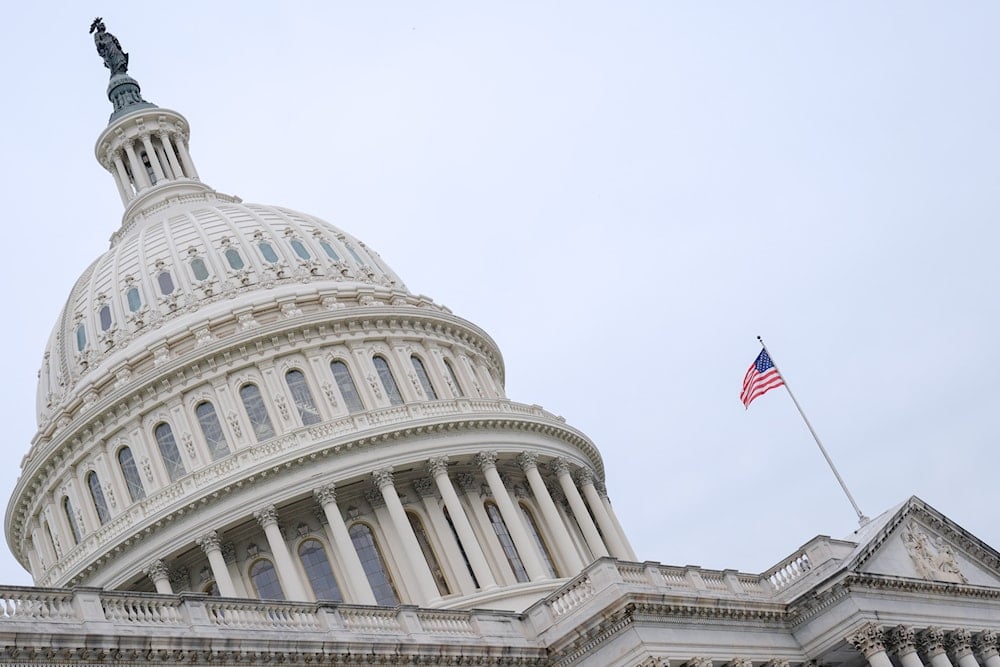US 2025 government shutdown becomes longest in history
The 2025 US government shutdown has become the longest in the country's history, surpassing 36 days as Republicans and Democrats remain at odds over funding and healthcare-related tax credits.
-

The US flag flies atop the Capitol Building on September. 29, 2025, in Washington. (AP Photo/Mariam Zuhaib)
The US government shutdown became the longest in the country’s history on Wednesday, surpassing the 36-day mark with no resolution in sight. The standoff between Republican and Democratic senators continues to paralyze efforts to restore funding to federal departments.
The previous record, 35 days, was set during Donald Trump’s first term, when funding was delayed due to the Republican demand for border wall financing along the US-Mexico border.
This shutdown began on the first of October, after Democratic senators refused to support a government funding bill unless it included an extension of tax credits from the Joe Biden administration. These credits lower the cost of health insurance plans purchased through the Affordable Care Act (ACA) exchanges.
With the credits set to expire at the end of 2025, tens of millions of Americans may become unable to afford health coverage. The Democrats have maintained that this issue must be addressed in any funding legislation.
Senate gridlock persists as House remains idle
In September, the Republican-controlled House of Representatives passed the funding bill with support from just one Democrat. Since then, Speaker Mike Johnson has kept the House out of session, placing the burden of negotiations on the Senate.
Majority Leader John Thune has held 14 votes on the legislation, all of which have failed due to a lack of Democratic support. The nonpartisan Congressional Budget Office estimates that the shutdown could cost the US economy up to $14 billion in GDP, depending on how long the impasse lasts.
Approximately 700,000 federal workers were furloughed at the onset of the shutdown, with an additional 700,000 ordered to continue working without pay until funding is reinstated.
Food banks across the country have reported a spike in demand from unpaid federal employees. That strain is expected to extend to the wider public, as the Department of Agriculture recently announced it had exhausted funding for the Supplemental Nutrition Assistance Program (SNAP), also known as food stamps. The agency later stated that only half of the normal benefits would be disbursed.
Trump and GOP roles in prolonged shutdown
Donald Trump has remained largely disengaged from negotiations. He met once with top congressional leaders on the eve of the shutdown, but the meeting failed to yield a compromise. Since then, Trump has urged Republican senators to eliminate the filibuster rule, which requires 60 votes to pass most legislation. However, Thune has indicated that Republican lawmakers do not support changing Senate procedure.
In mid-October, Trump announced that he would direct the US military to continue paying personnel by reallocating unused Pentagon research and development funds, an action that legal experts described as likely unlawful.
Democrats argue that Republicans, who control both chambers of Congress, bear the responsibility for reaching a deal. Although eight Democratic votes are needed to pass funding in the Senate, only three Democrats have voted in favor of the current bill. Republican Senator Rand Paul has also voted against it.
Democratic lawmakers stress the urgency of addressing ACA-related premium increases, projected to rise by an average of 26% if the tax credits expire. According to the Kaiser Family Foundation, the increase could price millions out of the healthcare market.

 3 Min Read
3 Min Read








